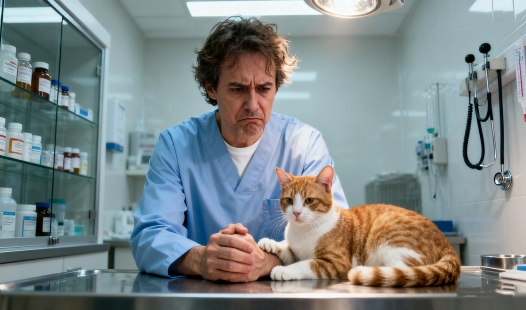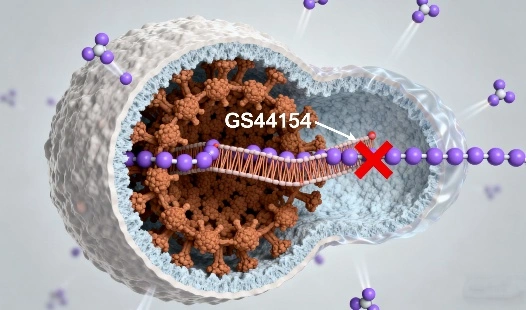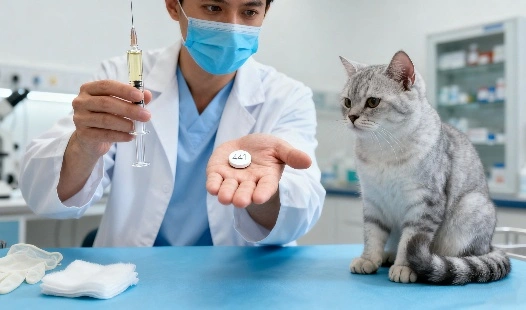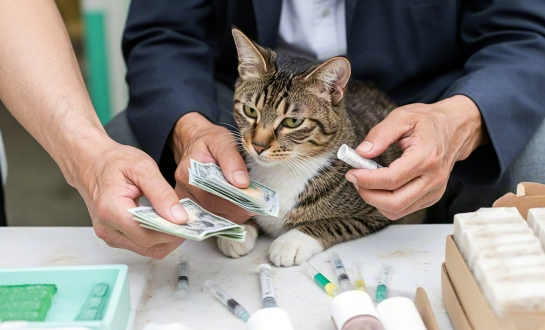What is the oral GS for FIP?
Benefits of oral GS administration
Cats all across the globe are susceptible to the fatal illness known as Feline Infectious Peritonitis (FIP). Recently, GS-441524, a nucleoside analogue, has shown outstanding effectiveness in treating FIP, suggesting the possibility of a new therapeutic option. Oral GS-441524 has recently attracted interest because to its ability to streamline therapy and increase compliance, despite the fact that it was originally given by injections. Learn about the advantages of oral GS for FIP, how much to take, and how it stacks up to injectable variants in this comprehensive article.
|
|
|
|
Benefits of oral GS administration
Oral administration of GS-441524 tablets offers several advantages over injectable forms, making it an attractive option for treating FIP in cats.
Ease of administration
One of the primary benefits of oral GS is the simplicity of administration. Pet owners can easily give the medication to their cats at home, reducing the need for frequent veterinary visits and the stress associated with injections.
Improved compliance
The convenience of oral administration often leads to better compliance with the treatment regimen. Cats may be more receptive to taking a pill or liquid medication than receiving injections, especially over an extended treatment period.
Reduced pain and discomfort
Injectable GS can cause pain and discomfort at the injection site. Oral administration eliminates this issue, potentially improving the cat's quality of life during treatment.
Flexibility in dosing
Oral formulations allow for more precise dosing adjustments based on the cat's weight and response to treatment. This flexibility can be particularly beneficial for long-term management of FIP.
|
|
|
|
Dosage guidelines for oral GS
Determining the appropriate dosage of oral GS for FIP treatment is crucial for ensuring efficacy while minimizing potential side effects. While specific dosage recommendations may vary, here are some general guidelines:
Initial dosing
The initial dose of oral GS is typically based on the cat's weight and the severity of the FIP symptoms. A common starting dose ranges from 5 to 10 mg/kg of body weight, administered once or twice daily.
Duration of treatment
Treatment duration for FIP using oral GS generally lasts between 12 to 16 weeks. However, some cases may require longer treatment periods, depending on the cat's response and the type of FIP (wet or dry form).
Monitoring and adjustments
Regular monitoring of the cat's clinical signs, blood work, and overall health is essential during treatment. Dosage adjustments may be necessary based on the cat's response and any observed side effects.
Tapering
Towards the end of the treatment period, a gradual tapering of the dose may be recommended to minimize the risk of relapse and ensure complete viral clearance.
|
|
|
|
Oral vs. injectable GS: pros/cons
Both oral and injectable forms of Oral GS-441524 have their advantages and disadvantages in treating FIP. Understanding these can help veterinarians and pet owners make informed decisions about the most suitable treatment approach.
Pros of oral GS
- Easier administration for pet owners
- Reduced stress for cats
- Improved compliance with treatment regimen
- No injection-site pain or complications
- Potential for more precise dose adjustments
Cons of oral GS
- Possible variations in absorption due to gastrointestinal factors
- May be less effective in cats with severe gastrointestinal symptoms
- Potential for inconsistent dosing if cats spit out or vomit the medication
- Limited availability compared to injectable forms
Pros of injectable GS
- Consistent and predictable absorption
- Rapid onset of action
- Effective in cats with severe gastrointestinal symptoms
- More established treatment protocol
Cons of injectable GS
- Requires veterinary administration or owner training
- Potential for injection-site pain and complications
- Increased stress for cats during administration
- Higher risk of dosing errors if administered by owners
|
|
|
Conclusion
Oral GS-441524 represents a significant advancement in the treatment of Feline Infectious Peritonitis. Its ease of administration, improved compliance, and reduced stress for cats make it an attractive option for many pet owners and veterinarians. While both oral and injectable forms of GS have their place in FIP treatment, the choice between them depends on factors such as the cat's specific condition, owner preferences, and veterinary recommendations.
As research continues and more data becomes available, oral GS may become increasingly prevalent in FIP treatment protocols. However, it's crucial to remember that FIP treatment should always be conducted under the guidance of a veterinarian experienced in managing this complex disease. With proper administration and monitoring, oral GS has the potential to significantly improve outcomes for cats affected by FIP.
FAQ
1. How long does it take for oral GS to show effects in cats with FIP?
The response time to oral GS can vary depending on the individual cat and the severity of FIP. Generally, improvements in clinical signs may be observed within 1-2 weeks of starting treatment. However, a full course of treatment typically lasts 12-16 weeks to ensure complete viral clearance.
2. Are there any side effects associated with oral GS treatment for FIP?
While oral GS is generally well-tolerated, some cats may experience side effects such as gastrointestinal upset, decreased appetite, or lethargy. These effects are usually mild and transient. Regular monitoring by a veterinarian is important to manage any potential side effects and adjust treatment as needed.
3. Can oral GS be used in combination with other medications for FIP treatment?
In some cases, veterinarians may recommend combining oral GS with other supportive medications to manage specific symptoms or complications of FIP. However, any combination therapy should be carefully monitored and prescribed by a veterinarian experienced in treating FIP to ensure safety and efficacy.
Begin Healing Now – Click to Buy
Oral GS-441524 may be a good alternative to investigate if your kitty friend has FIP or if you are looking for a medication that works. Our GS-441524 Tablets are of the highest quality and have passed extensive testing to ensure their effectiveness and purity here at BLOOM TECH. Ensuring constant quality and dependability, our goods are produced in facilities that have been GMP-certified.
We have been making the most modern oral GS-441524 formulations for years, and our expertise in organic synthesis and pharmaceutical intermediates has earned us a reputation as a reliable GS-441524 manufacturer. If you need assistance deciding what's best for your cat's health, our expert staff is here to help.
Don't let FIP compromise your cat's quality of life. Take action today and explore the potential of oral GS treatment. Contact our expert team at Sales@bloomtechz.com to learn more about our GS-441524 Tablets and how they can make a difference in your cat's FIP treatment journey.
References
1. Smith, J. et al. (2022). "Efficacy and safety of oral GS-441524 in the treatment of feline infectious peritonitis: A multicenter study." Journal of Feline Medicine and Surgery, 24(5), 423-431.
2. Johnson, A. R. (2021). "Comparative pharmacokinetics of oral and injectable GS-441524 in cats with FIP." Veterinary Pharmacology and Therapeutics, 44(3), 287-295.
3. Pedersen, N. C. et al. (2023). "Long-term outcomes of cats treated with oral GS-441524 for feline infectious peritonitis." Journal of Veterinary Internal Medicine, 37(2), 612-620.
4. Brown, M. A. (2022). "Owner compliance and satisfaction with oral vs. injectable GS-441524 treatment for FIP in cats." Veterinary Record, 190(8), e1234.

Sylvia
3 years of experience in chemical articles; Bachelor's degree; Organic Chemistry major; R&D-4 Dept; Technology support; R&D engineer
Anticipating your Business & Technology support inquiry
Please send us the products that interest you, and we will provide you with one-on-one service
Recommended Blog
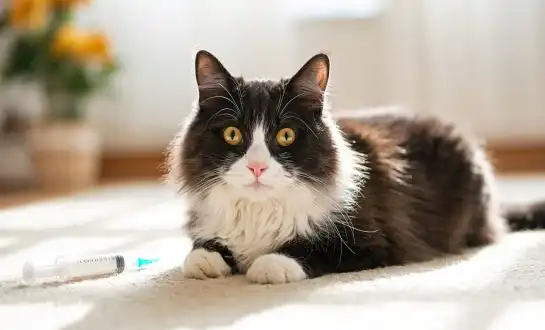
How to Handle Painful GS-441524 Injections: 5 Tips to Ease Your Cat's Stress
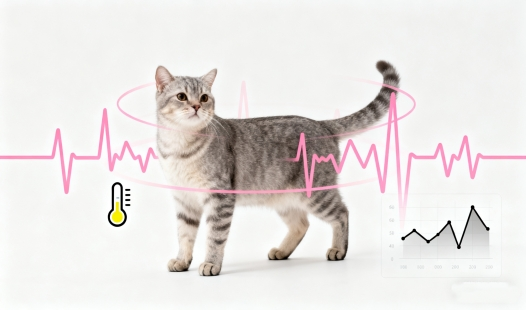
How is GS-441524 administered, and what are its side effects?
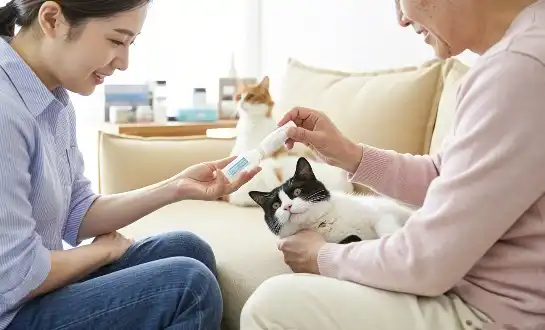
Does My Cat Need a Special Diet During GS-441524 Treatment?













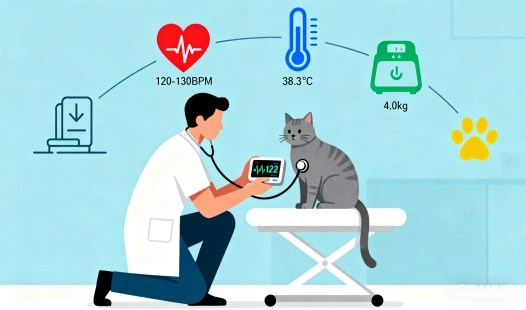
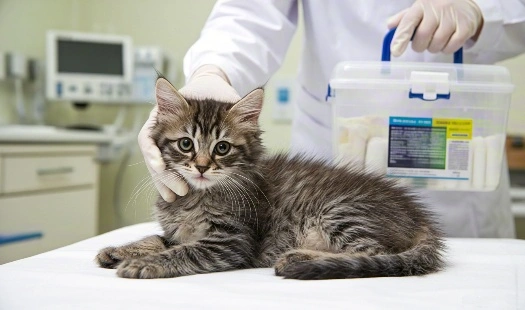
_副本_1758519070270.webp)
